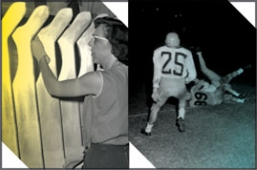All public washrooms at Barton Branch are not working. We aim to get it fixed quickly.
The Freelton Branch is open today from 9 AM to 5 PM for Extended Access only.
From March 23 until April 12, Valley Park Community Centre will be closed for renovations, reopening April 13. Pool and changerooms will remain closed until early summer 2026.
Valley Park Branch will remain open during the renovations for your library needs.
Filming will take place Mar 3-4, 7am to 11pm, at 1464 Centre Rd. This may impact traffic flow in the surrounding area.
The accessibility door at Carlisle Branch is not working. We aim to fix it quickly.
Renovation preparations are underway in anticipation of the March 2 start. Computer availability may be limited. Living Room and Makerspace areas are closed. (The next nearest Makerspaces are Sherwood and Terryberry Branches.) Renovations are expected to be completed in late Spring. Thank you for your patience.
Renovation preparations are underway in anticipation of the March 2 start. Starting the week of February 23, the 2nd Floor will be closed. The Children's collection will be temporarily available on the 1st Floor. Renovations are expected to be completed in late Spring. Thank you for your patience.
Starting Tuesday February 10, the First Floor Living Room is closed due to renovation preparations. Study and work spaces are available on Floors 2-4. Thank you for your patience.
Please note the following Bookmobile visit updates.
Friday, February 27
Winona 11:00am-12:00pm - Cancelled
Maplewood 2:30-4:00pm - Cancelled
The accessible washroom at Carlisle Branch is not working. We aim to get it fixed quickly.
Effective Sunday, February 1, Sunday service hours at Central Library will be paused.
Sunday Hours will continue at Dundas, Red Hill, Terryberry, Turner Park, Valley Park and Waterdown Branches from 1-5pm.
Historical Dundas
One of the oldest communities at the Head of Lake, the Town of Dundas had its formal beginnings when town lots were surveyed along the waterway now known as Spencer Creek in 1797. Before that time there was a small community in that location known as Coote’s Paradise. Captain Thomas Coote was a military officer stationed with the British contingent at Fort George near what was then known as Newark and is now Niagara-on-the-Lake. Captain Coote and his co-officers often made the trek from Fort George to the coastal marsh through which the waters of Spencer Creek and other streams emptied in the harbour at the west end of Lake Ontario. The marsh was an excellent location for hunting as huge numbers of waterfowl used it as a resting and staging area during the times of migration in the spring and fall. It was thus considered a hunter’s paradise and as Captain Coote was one of the prominent hunters to frequent the area, it became known as Coote’s Paradise. The community at the end of the marsh was also given the name Coote’s Paradise until 1797 when it was renamed Dundas, in honour of Henry Dundas, Viscount Melville, Secretary of State for the Home Department from 1791 until 1801.
Being located at a critical transportation hub, (notably along York Road and Governor’s Road, two of the oldest thoroughfares in the area,) the village of Dundas advanced rapidly in terms of population and commerce. The proximity to the Niagara Escarpment, and the powerful stream (Spencer Creek) which went over it in that area, led to the construction of a large number of mills built to take advantage of the waterpower available. In the 1826, sufficient financing was in place to begin construction of the Desjardins Canal. The purpose of the canal was to bring lake-going vessels from Burlington Bay (now Hamilton Harbour) through Coote’s Paradise to a warehouse area along Spencer in the community of Dundas. The canal, although used in limited fashion since 1826, was not fully completed until 1837 due to major construction and financial challenges. Once completed, the Desjardins Canal helped the village of Dundas advance rapidly as a thriving community, leading to its achieving its incorporation as a town in 1847. One year later, the financing and plans were finalised for the construction of town hall on the Hay Scale Square at the corner of Main and Hatt Streets. Still standing and in public use, the Dundas Town Hall was completed rather rapidly and was ready for its formal opening in July 1849.
After the completion of the Great Western Railway in 1855, the need for a navigation canal to make Dundas a port diminished rapidly, leading the Desjardins Canal Company to its eventual bankruptcy. The community of Hamilton with its expanding port facilities along the bay shore and its full connection with the Great Western Railway, rapidly eclipsed Dundas as the main urban centre in the region. In January 2001, the Town of Dundas as a formal municipal body came to an end with the creation of the amalgamated City of Hamilton. However, Dundas as a strong, vibrant heritage community retains its distinctive identity to this day.
















